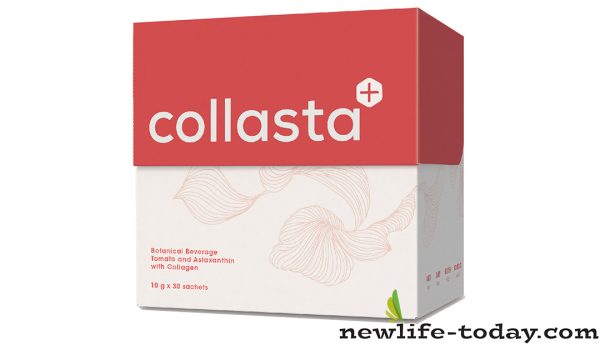Vitamin K1 is an ingredient found in our
Collasta+
product as shown above.
Ingredients contained are not sold separately from the product
unless it's the only ingredient.
Collasta+ contains Fructo-Oligosaccharides, Hydrolyzed Marine Collagen, Citric Acid, Tomato, Astaxanthin, Haematococcus Pluvialisin, Vitamin A, Vitamin D3, Vitamin E, Vitamin K1, Vitamin B1, Vitamin B2, Vitamin B3, Vitamin B5, Vitamin B6, Vitamin B7, Vitamin B9, Vitamin B12, Vitamin C, Fruit Flavour, Stevia, Grape Seed, Green Tea, Pine Bark Extract, Mangosteen, Tremelia, Marigold Flower.
Vitamin K1 (phylloquinone) is a fat-soluble vitamin primarily found in green leafy vegetables (such as kale, spinach, and broccoli), some vegetable oils, and certain fruits. It is the primary form of vitamin K that is involved in blood clotting, helping the body to produce proteins required for coagulation (the process of blood clotting). Vitamin K1 is absorbed in the small intestine and then transported to the liver, where it plays a key role in activating clotting factors.
In addition to its role in blood coagulation, vitamin K1 is essential for bone health and cardiovascular health, influencing the regulation of calcium in the body.
Health Benefits of Vitamin K1
- Blood Clotting
- Vitamin K1 is essential for the synthesis of clotting factors, such as prothrombin, that help stop bleeding after an injury. A deficiency in vitamin K1 can lead to excessive bleeding or easy bruising.
- Bone Health
- Vitamin K1 helps regulate calcium metabolism, promoting bone mineralization and reducing the risk of fractures. It works in conjunction with vitamin D to maintain bone strength.
- Cardiovascular Health
- Vitamin K1 helps in regulating calcium deposition in the arteries, reducing the risk of arterial calcification (which can lead to heart disease) and promoting cardiovascular health.
- Preventing Osteoporosis
- Adequate vitamin K1 intake is linked to improved bone density and a reduced risk of osteoporosis, a condition characterized by weak and brittle bones.
- Support for Healthy Skin
- Some studies suggest that vitamin K1 may help with skin health by reducing wrinkles and improving skin elasticity, although more research is needed in this area.
- Improved Insulin Sensitivity
- Vitamin K1 may play a role in improving insulin sensitivity, potentially lowering the risk of type 2 diabetes.
Sources of Vitamin K1
- Leafy Green Vegetables: Kale, spinach, collard greens, broccoli, and lettuce are the richest sources.
- Vegetable Oils: Soybean oil, canola oil, and olive oil.
- Fruits: Avocados, kiwifruit, and some berries.
- Fortified Foods: Some cereals and dairy products may be fortified with vitamin K1.

